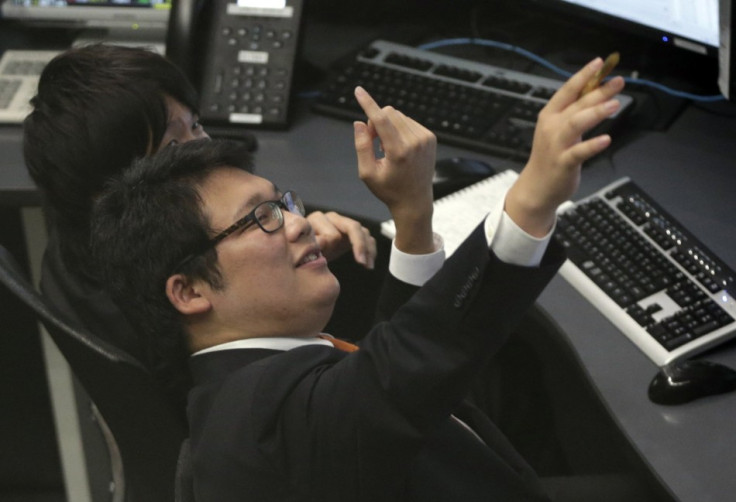Asian Markets Weekly Review: Stocks Log Strongest Weekly Gain Since April After Fed Stimulus Surprise

Financial markets in Shanghai and South Korea, which remained closed on 19-20 September, are expected to open higher next week, as they react to the US Federal Reserve's unexpected monetary stimulus decision.
However, trade on 23 October could be hit by potential market closures in China and South Korea, given that Typhoon Usagi maintained its track toward Hong Kong.
The Hong Kong observatory warned that the storm poses a "severe threat" to the city. Meanwhile, China's National Meteorological Centre warned that Usagi would impact the coastal Guangdong, Zhejiang and Fujian provinces.
Markets participants across Asia will be tracking a host of economic data coming in from the US all-week long.
Housing market data, alongside income and spending figures would throw more light on the health of the US economy and could provide hints as to whether the Fed would begin tapering its monetary stimulus after the October meeting of its policymakers.
Market players will also be following speeches by several Federal Reserve officials, due next week, for clues as to the future pace of the Fed's monetary policy.
The week ahead will see HSBC put out preliminary Chinese manufacturing PMI data for the month of September.
Japan will release consumer price index data for the months of September and August alongside machine tool orders data for the month of August.
The Week That Was
Asian stocks logged their strongest weekly gains in nearly six months this week.
The bullish sentiment was fuelled by the US central bank's decision to delay the planned reduction of its $85bn-a-month bond-buying stimulus.
Markets opened the week on a strong note on news that hawkish American economist Larry Summers had withdrawn from the race to head the US Fed.
"With Lawrence Summers now out of the Fed chair race, it makes dove Janet Yellen the favourite to be the next chairman of the US Federal Reserve," said Tim Radford, global analyst at Rivkin Securities.
"Summers was the clear favourite within the White House, given his contribution in guiding the US economy through the global financial crisis under President Barack Obama. But with growing opposition in Congress to the man that has been widely criticised and blamed for helping cause the 08/09 financial crisis due to his influence on deregulating the financial services industry, Summers has essentially been forced to pull out from the race," Radford said.
However, fears of an imminent reduction in the Fed's asset-buying stimulus pulled down most markets on17 September.
Markets traded higher on 18 September, ahead of the Fed decision, having factored in a $10bn reduction in Fed stimulus.
The US central bank's decision to maintain the current pace of its stimulus programme fuelled a rally across markets on 19 September. The Fed said that the current pace of economic growth in the US did not justify tapering monetary stimulus.
Markets traded lower on 20 September, after a rate hike in India dragged down the benchmark Sensex and weighed on investor sentiment across the region.
The Reserve Bank of India (RBI) defied market consensus and raised the benchmark repurchase rate by 25 basis points to 7.5%. The news pulled down Indian stocks and the benchmark S&P BSE Sensex, which had hit a two-and-a -half year high on 19 September following the Fed surprise.
The Indian rupee lost 1% following the RBI decision.
"Let us remember that the postponement of tapering is only that, a postponement. We must use this time to create a bullet proof national balance sheet and growth agenda, which creates confidence in citizens and investors alike," RBI Governor Raghuram Rajan said in a statement.
© Copyright IBTimes 2025. All rights reserved.






















